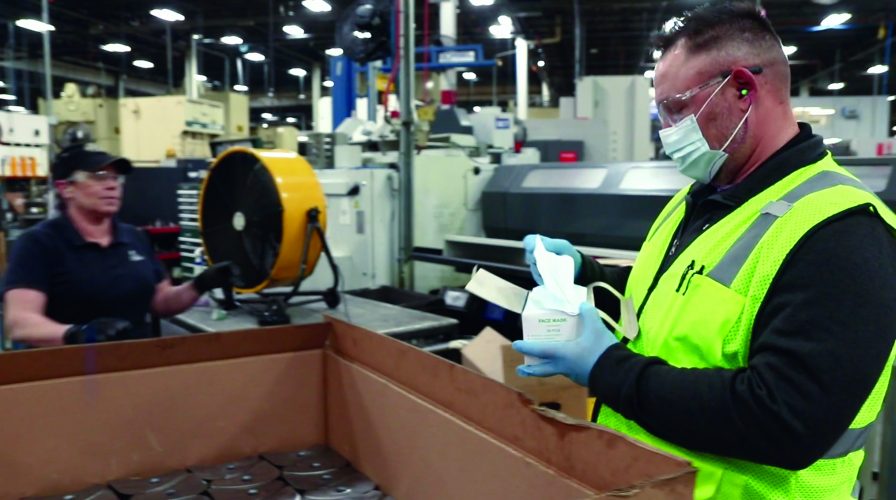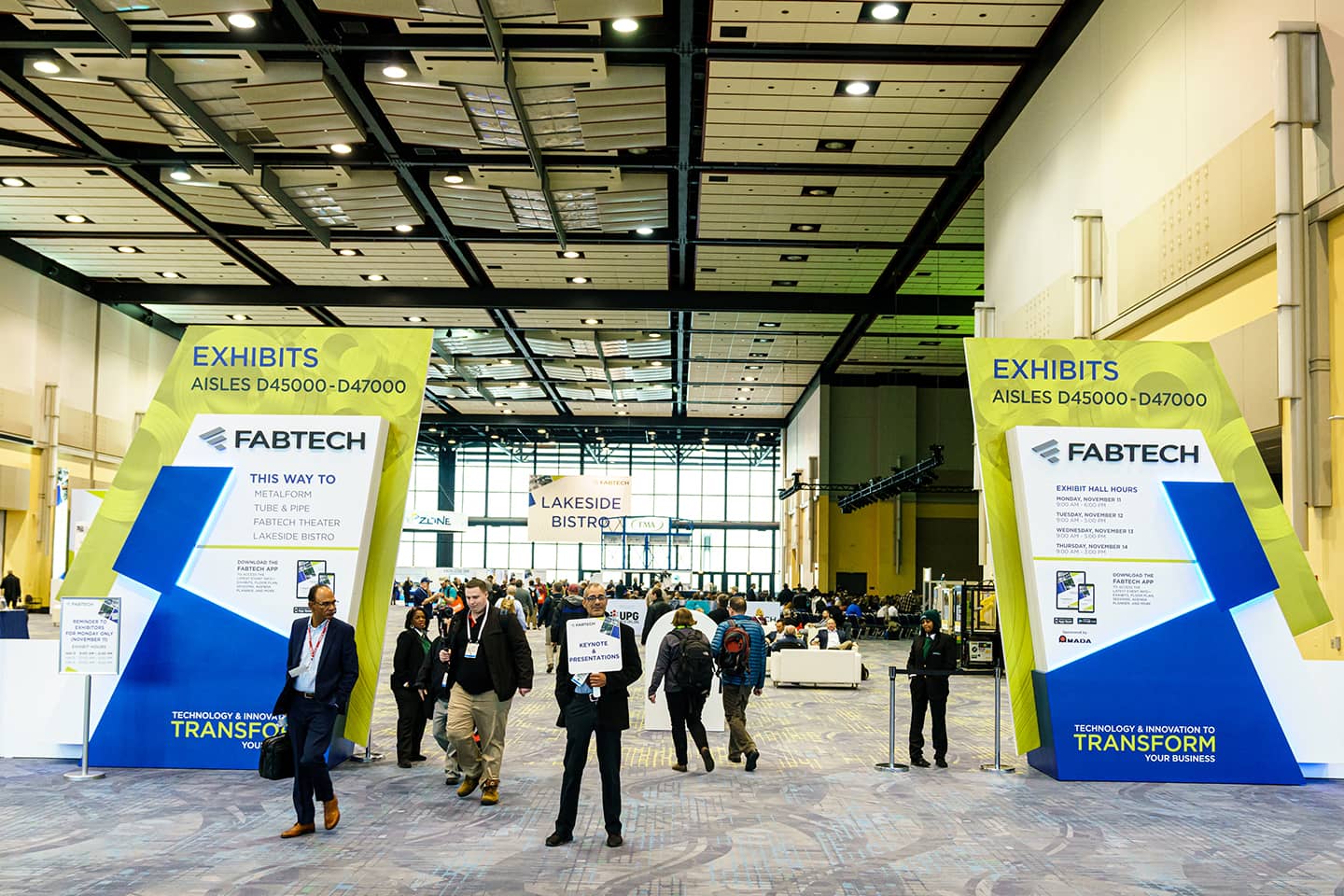Adjusting Safety Best Practices During a Pandemic
How companies can adapt to working in an ever-changing COVID-19 environment BY JERRY ZIEGENBEIN, director of weld operations, Kapco Metal Stamping, Grafton, Wis. Reprinted with permission: The AWS Welding Journal The COVID-19 pandemic has differing impacts on businesses of all types across all industries. In the manufacturing space, specifically, it has influenced changes in the supply chain, put extra pressure on suppliers and partners, and prompted operations to take a close look at health and safety protocols to ensure those practices are aligning with the findings and advice of medical experts — Fig. 1. As a result, companies have had to quickly adapt to an ever-changing COVID-19 environment. This article highlights factors that allowed companies to endure the impact of the pandemic, the importance of investing in technology that enhances employee safety and productivity, and employee training for the future.
Factors That Enabled Companies to Endure the Tough Times
The companies that have been most successful in handling safety and health considerations to keep operations running during the pandemic were prepared to react quickly and thoroughly from the start. Some of the factors that positioned businesses well to weather the initial months of the pandemic include the following:
As a result, companies have had to quickly adapt to an ever-changing COVID-19 environment. This article highlights factors that allowed companies to endure the impact of the pandemic, the importance of investing in technology that enhances employee safety and productivity, and employee training for the future.
Factors That Enabled Companies to Endure the Tough Times
The companies that have been most successful in handling safety and health considerations to keep operations running during the pandemic were prepared to react quickly and thoroughly from the start. Some of the factors that positioned businesses well to weather the initial months of the pandemic include the following:
- Having extra inventory of sanitation materials and personal protective equipment (PPE). This includes products like hand sanitizer, disinfecting cleaners, and face masks. Organizations that were stocked up for the traditional flu season benefitted from being prepared. However, as all companies operate under this new normal for an unknown period of time, it is best practice to make sure your company is well stocked with sanitization and safety materials. Other sanitation practices that companies embraced include spacing shift changes by at least 30 min to ensure the entire facility — shops, equipment, bathrooms, and lunchrooms — can be properly disinfected.
- Acting quickly and appropriately. When medical experts and epidemiologists make recommendations, companies should react appropriately, even when those recommendations change with new information. There is certainly a significant cost associated with making hard decisions that change the norm of an operating environment. However, companies that reacted quickly to the facts and information related to the pandemic made difficult choices, such as discontinuing in-person department meetings, customer and vendor visits, and travel between internal offices and business sites. Those interactions continued virtually unless absolutely necessary, in which case appropriate mask wearing and social distancing guidelines were followed. Employees in the industry who were able to get their jobs done remotely embraced the work-from-home norm. Meanwhile, those skilled workers responsible for the welding and manufacture of many of the products that companies produce were supplied with face masks and PPE while social distancing mandates were enacted .
- Maintaining a diverse set of skilled workers. Organizations with a diverse skill range of welders were able to react swiftly at the onset of the pandemic. Take for example an organization that may have seen initial demand changes when the full realization of the pandemic’s impact took hold. By having welders with a diverse skill range, organizations can toggle output capacity without significant layoffs due to the variety of roles and responsibilities within their staff. Less experienced welders can operate welding robots while more experienced welders can assist those team members with robot setups, programming, inspections, and quality control. Additionally, the most experienced and skilled welders can continue executing manual welding work. That skill balance affords the flexibility to right-size to meet demand without having to change employment levels or adjust hiring practices, even during times of great uncertainty.















